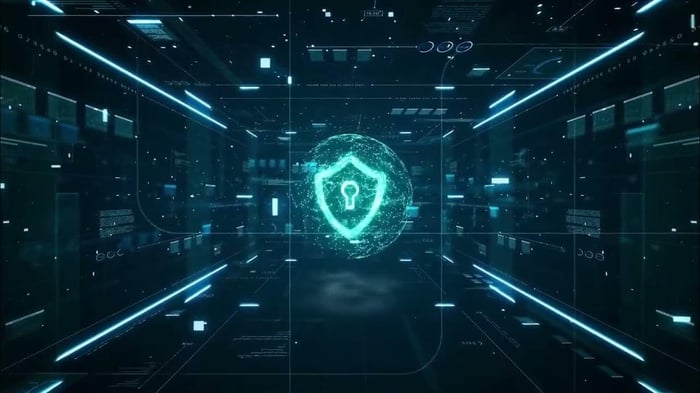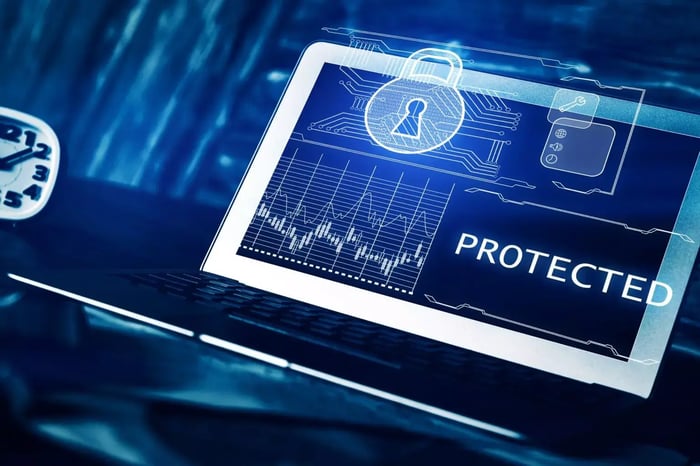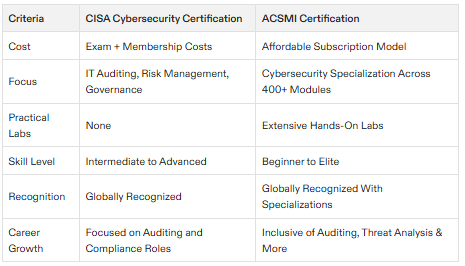Table of Contents
With the exponential rise in cyberattacks and data breaches, cybersecurity has become a critical priority for organizations worldwide. This increasing demand for robust digital security has led to a massive surge in the need for certified cybersecurity professionals. Whether you're just starting out or looking to further your career, passing an It Specialist Cybersecurity Certification test is essential for gaining credibility in this competitive field. Certification tests serve as gateways to globally recognized credentials like CISSP, CEH, and CompTIA Security+, helping to validate your skills, enhance your resume, and prove your ability to respond effectively to real-world cybersecurity challenges.
What is a Cybersecurity Certification Test?
A cybersecurity certification test is a standardized exam designed to assess your ability to handle specific cybersecurity tasks. These tests often cover a wide range of skills, including network security, risk management, incident response, and security architecture. Organizations like (ISC)², CompTIA, and EC-Council offer these tests, each aligned with different career roles and expertise levels.
For example, an entry-level certification like CompTIA Security+ focuses on fundamental cybersecurity practices, such as network protection and data encryption, while more advanced tests like CISSP assess your proficiency in designing complex security architectures and governance protocols.
Why is a Cybersecurity Certification Test Important?
Taking a cybersecurity certification test is not only about validating your knowledge but also about unlocking career opportunities. These exams help boost your earning potential, gain global recognition, and qualify you to work with leading organizations. A certification test establishes your credibility, making it easier for recruiters to trust your skills and increase your chances of landing high-demand cybersecurity roles.
Benefits of a Cybersecurity Certification Test
Certification tests provide many career advantages beyond just passing an exam. Here’s why cybersecurity certification tests are so important:
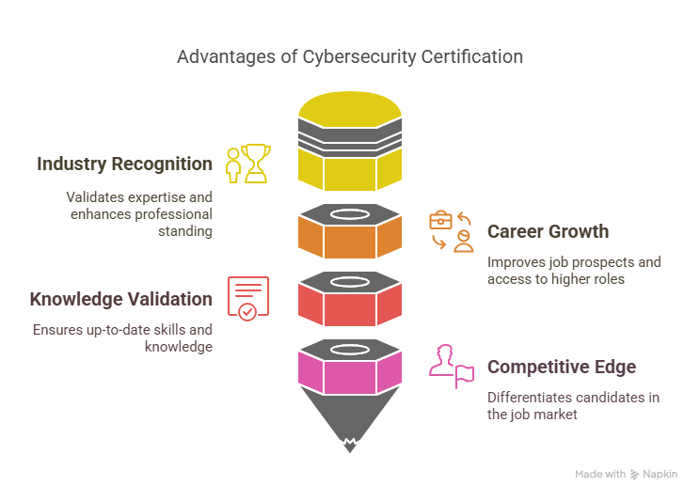
1. Industry Recognition
Cybersecurity certifications from respected organizations validate your expertise and enhance your professional standing. Credentials like CISSP, CEH, and CompTIA Security+ are recognized globally and indicate a high level of proficiency in cybersecurity practices.
For example, obtaining a CISSP certification not only validates your technical knowledge but also positions you as an expert in the governance and management aspects of cybersecurity, making you highly sought after by employers worldwide.
2. Career Growth
Successfully passing a cybersecurity certification test can significantly improve your job prospects. It enhances your resume, making you eligible for highly coveted roles like Security Analyst, Penetration Tester, or Risk Manager. Certifications increase your job market value, allowing you to access career growth opportunities and higher-paying roles.
3. Knowledge Validation
A cybersecurity certification test ensures that you’re equipped with the latest knowledge, tools, and security protocols. These tests validate your ability to manage risks, respond to security incidents, and deploy cybersecurity solutions that protect organizations from modern threats.
4. Competitive Edge
In a competitive job market, cybersecurity certifications help differentiate you from other candidates. They prove your commitment to continuous professional development and growth, which can be a deciding factor for employers when hiring for leadership roles in cybersecurity.
Common Cybersecurity Certification Tests
There are many cybersecurity certifications available, each designed for different roles, experience levels, and specialization areas. Here are some of the most recognized and important certification tests in the industry:
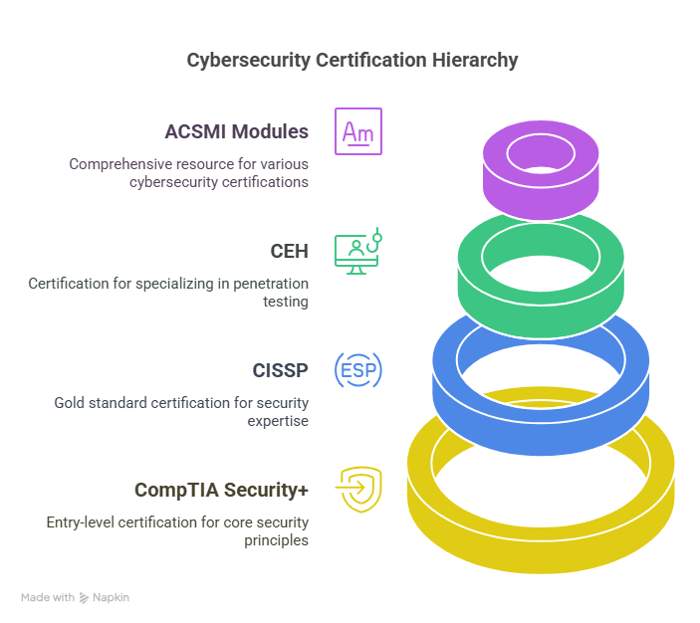
1. CompTIA Security+
Aimed at newcomers to cybersecurity, CompTIA Security+ is an entry-level test that focuses on core security principles, such as threat management, network security, cryptography, and compliance. It's an excellent starting point for those new to the cybersecurity field.
2. Certified Information Systems Security Professional (CISSP)
The CISSP certification is widely regarded as the gold standard in the cybersecurity industry. It covers a broad range of security topics, including threat modeling, access control, legal compliance, and security governance. This test is suitable for experienced professionals aiming to validate their expertise in designing and managing complex cybersecurity systems.
3. Certified Ethical Hacker (CEH)
The CEH certification is designed for professionals who want to specialize in penetration testing. This test evaluates your ability to think like a hacker, identify vulnerabilities, and secure systems before malicious actors can exploit them. It’s ideal for anyone interested in ethical hacking or vulnerability assessment.
4. Advanced Certifications with ACSMI
ACSMI offers over 400 modules designed to prepare candidates for a wide range of cybersecurity certification tests, including CISSP, CEH, CompTIA Security+, and many more. These modules cover governance, cloud security, AI security, and network protection, making ACSMI a top resource for comprehensive preparation.
Top Strategies to Pass a Cybersecurity Certification Test
To succeed in any cybersecurity certification test, you need more than just theoretical knowledge. Here are some strategies to ensure you pass your cybersecurity certification test with flying colors:
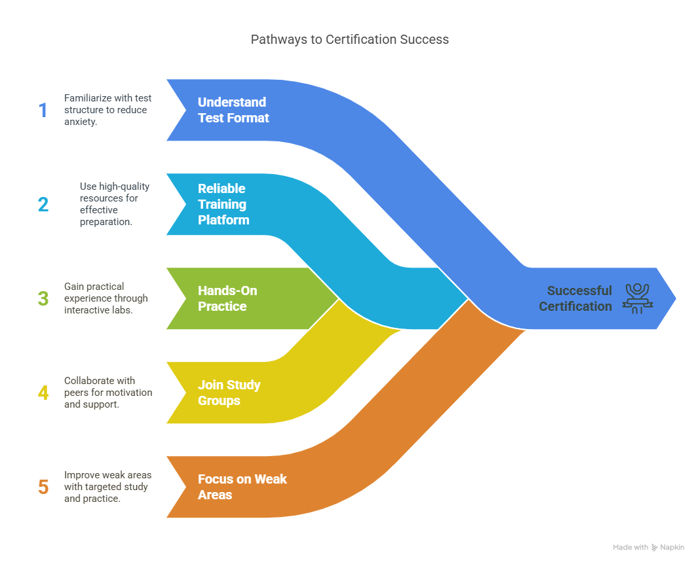
1. Understand the Test Format
Every cybersecurity certification test has its own format, structure, and topics. Before diving into your preparation, thoroughly review the test structure, including the number of questions, time limit, and areas of focus. Knowing what to expect helps reduce anxiety and allows for better time management during the test.
2. Choose a Reliable Training Platform
Effective preparation requires high-quality study materials and resources. ACSMI offers curated resources, practice exams, and simulations that replicate real-world cybersecurity scenarios. This ensures you're not just prepared for the exam but also equipped to apply your knowledge in real-world situations.
3. Leverage Hands-On Practice
While theoretical knowledge is essential, hands-on practice is equally important. Engage in practice labs, penetration testing exercises, and incident management scenarios to gain practical experience. Platforms like ACSMI offer interactive labs that mimic real-world environments, allowing you to practice skills required for certification exams.
4. Join Study Groups
Collaborating with others who are preparing for the same exam can be immensely helpful. Study groups allow you to clarify doubts, share resources, and discuss difficult topics with peers. Consider joining online study forums or cybersecurity communities on platforms like Reddit or LinkedIn to stay motivated and engaged.
5. Focus on Your Weak Areas
Identify topics that you find challenging and allocate additional study time to improve in those areas. Practice tests are a great way to assess your progress and pinpoint weaknesses. Spend extra time on difficult topics to ensure you're thoroughly prepared.
Preparing with ACSMI
ACSMI is a top platform for preparing for Google Cybersecurity Certification tests, offering over 400+ modules tailored to meet the needs of individuals at all career stages. Here's why ACSMI is a top choice for test preparation:
Personalized Learning Paths
ACSMI tailors study plans based on your skill level, pace, and professional goals. Whether you're a beginner or an experienced professional, ACSMI adapts to your needs and ensures a focused and efficient preparation process.
Expert Mentorship and Guidance
Gain insights from seasoned cybersecurity professionals who guide you through complex topics, offering real-time answers to your questions. Their mentorship ensures you understand advanced topics like penetration testing, cloud security, and AI-driven threats.
Immersive Hands-On Labs
ACSMI's hands-on labs simulate real-world environments, preparing you for the practical tasks you’ll face in the cybersecurity field. These labs help reinforce theoretical knowledge by allowing you to apply it in real scenarios, such as configuring firewalls or performing risk assessments.
Comprehensive Practice Tests
ACSMI provides expansive practice exams that closely match the structure of actual certification tests. These practice exams help you familiarize yourself with the question types, case studies, and scenarios you’ll face on exam day.
Final Thoughts
Taking a cybersecurity certification test is an important milestone in your cybersecurity career. Beyond proving your skills, it opens up pathways to some of the highest-paying and most in-demand roles in the tech world. With platforms like ACSMI, you can confidently prepare for your test with hands-on labs, expert mentorship, and comprehensive practice exams.
Whether you're aiming for CISSP, CEH, or CompTIA Security+, passing your cybersecurity certification test is within reach. Start your preparation today and unlock your potential in the rapidly growing world of cybersecurity.
Frequently Asked Questions (FAQ)
1. What is the purpose of a cybersecurity certification test?
The purpose is to validate your ability to perform specific cybersecurity tasks, proving your proficiency in areas like network security, risk assessment, and incident management.
2. Do I need prior experience to take a test?
Entry-level certifications like CompTIA Security+ don’t require experience, while advanced tests like CISSP typically require years of experience in cybersecurity.
3. How long does it take to prepare?
Preparation time varies, but platforms like ACSMI offer self-paced learning that can be adjusted based on your schedule and knowledge level.
4. How much does it cost to take a test?
Costs range from $350 to $1,000, depending on the certification. Platforms like ACSMI offer all-inclusive packages that include study materials and practice exams.
5. What happens if I fail the test?
Most certification providers allow you to retake the test after a certain period. Using platforms like ACSMI for additional preparation will increase your chances of success on subsequent attempts.

